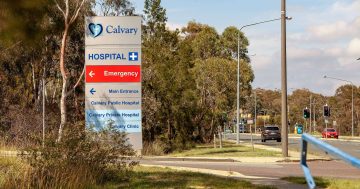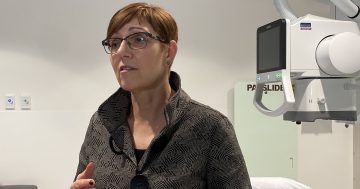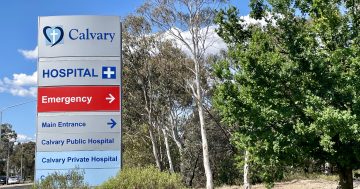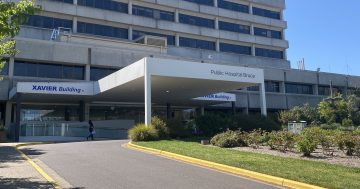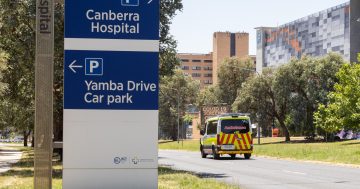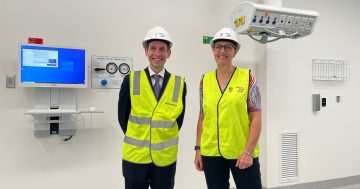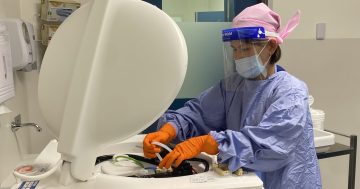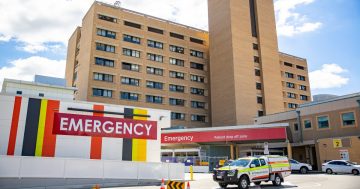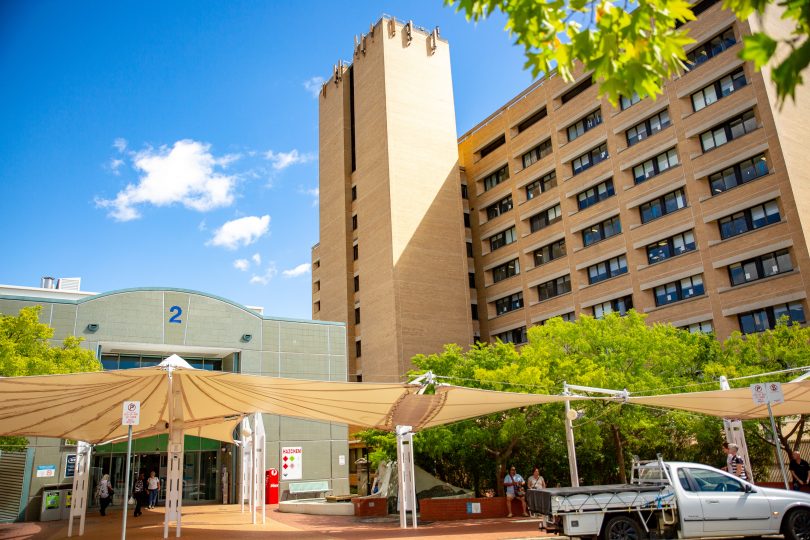
Canberra Hospital: ready to expand elective surgery after a three-week pause on non-essential procedures. Photo: File.
The ACT is set to expand elective surgery next week after National Cabinet decided on a gradual resumption of non-essential services, partially lifting restrictions on a range of procedures.
National Cabinet imposed the restrictions last month to free up beds and resources, including personal protective equipment (PPE), for the expected surge of patients during the COVID-19 outbreak amid concerns about hospitals being overwhelmed.
Today, with the lockdown working to slow the spread of COVID-19 and PPE supplies secured, Prime Minister Scott Morrison announced the following would be able to resume after the Anzac Day long weekend: category 2 surgery, post-cancer breast reconstruction, joint replacements, endoscopies and colonoscopies, IVF, screening programs, cataract and eye procedures, and those procedures for children aged under 18.
Dental procedures such as fitting dentures, braces, non-high-speed drilling and basic fillings can also restart.
”All measures will be further subject to review on 11 May to determine if all surgeries and procedures can then recommence more broadly,” Mr Morrison said.
“We estimate that this will lead to a reopening of around 25 per cent of activity in elective surgery in our private and public hospitals.”
He said the national lockdown would continue for another month but the easing of these restrictions was a step on ”the road back”.
Health Minister Greg Hunt said 60 million masks had been secured and another 100 million were on the way over the next six weeks, and the government had achieved its goal of 7500 ventilators.
Category 1 and urgent category 2 surgery is still being performed in the ACT but from next week the range of work will expand and Canberra Health Services will take the rest of the week to review waiting lists and contact patients.
As of 21 April, there are 5589 patients on the ACT Elective Surgery Waitlist across the ACT’s public and private hospitals (139 category 1 patients, 1647 category 2 and 3803 category 3).
Health Minister Rachel Stephen-Smith said all patients whose surgery had been deferred were still on the waiting list.
“We’ve not been taking anyone off the list and have been tracking patients, so when normal processes are able to be resumed people can be booked for a place with their procedure at an appropriate time,” she said.
She said patients would be prioritised according to clinical urgency and called by the booking team.
”I would encourage people to wait for that call,” she said.
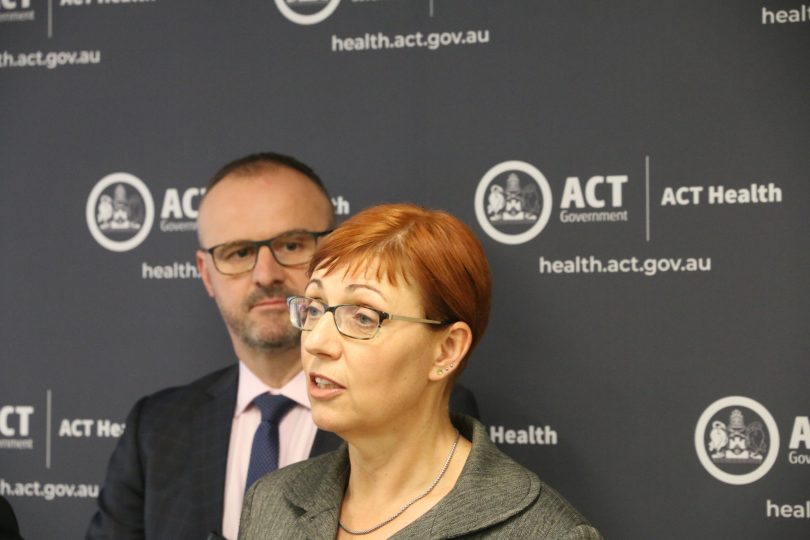
ACT Health Minister Rachel-Stephen Smith: wait for the call. Photo: Dominic Giannini.
Ms Stephen-Smith said public and private hospitals would continue to work together on this resumption of activity.
”There are obviously some procedures on the list that have come out of National Cabinet that are primarily or at least partially undertaken in private hospitals during normal times including IVF and joint replacements,” she said.
The ACT health system had sufficient PPE but if needed it would be able to access the national medical stockpile, which the Commonwealth had worked hard to secure, she said.
”At the moment we don’t have shortages of PPE in the ACT but like every jurisdiction we were certainly looking down that barrel and were concerned about PPE supply chains,” Ms Stephen-Smith said.
“Shoring up those supply lines is part of the reason we’ve been able to expand back to about a 25 per cent increase in activity in elective surgery.”
ACT AMA president Dr Antonio Di Dio said doctors and the hospital system were geared up to tackle the waiting list, praising the team approach taken by all involved.
”The surgeons are ready, the anaesthetists are ready, the theatre staff are ready, the hospital infrastructure is ready,” he said.
But he warned that the relaxing of restrictions would likely be temporary as COVID-19 cases built up again in the winter.
”We’ve got a year or even a year-and-a-half of opening and shutting, opening and shutting the economy, and health is a part of that,” he said.
Dr Di Dio said procedures would be done in a staged way to manage the supply of ICU beds.
”The first stage will be those semi-urgent cases that won’t use up an ICT bed,” he said. ”The second stage will be all of the semi-urgent category 2s, and if things are still going OK and we’re not getting person-to-person [COVID-19] transmission we’ll open it up to category 3 as well.
”If elective surgery needs to be shut down again it can be done very quickly.
”If we’re lucky we might get six weeks or more of good quality surgery happening so that’s six weeks less of great big waiting list build-up that we’re not going to have by the time this is all over in a year or more.”











